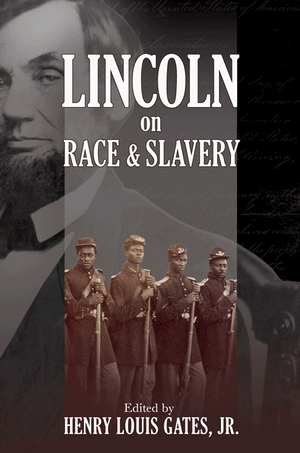Lincoln: A President for the Ages, edited by Karl Weber (Public Affairs, 2012), paperback, 288 pages
In commenting upon Steven Spielberg's great film, Lincoln, many have noted its shrewd juxtaposition of Lincoln's approach to politics compared to the gridlock that is the hallmark of today's federal government. By focusing on the Congressional passage of the 13th Amendment outlawing slavery, the movie portrays the 16th president pursuing a just cause -- in this case, the end of slavery -- through the imperfect and morally ambiguous tools of politics. Conventional wisdom compares this to the current pattern of Washington DC, where any attempt to do something significant invariably devolves into petty finger-pointing and to dueling talking points in the press.
Frequently, counter-factual history involves flights of fancy that veer towards the ridiculous. Here, though, significant historians who have experience writing about Lincoln and his era offer speculations rooted in the 19th Century context of Lincoln's decisions and actions. Three scholars consider Lincoln and the World War II era: Daniel Farber on executive power, James Takkach on the Hiroshima bomb, and Allen Guelzo on the end of the war. Jean Baker explores Lincoln and women's suffrage, while Frank Williams imagines how Lincoln might approach the war on terror. Two others consider Lincoln as public speaker and writer in today's media climate: Douglas Wilson on how Lincoln might shape public opinion with television and the Internet and Richard Carwardine on the specific issue of religious rhetoric. And the ubiquitous Harold Holzer concludes the book with a look at Lincoln and the culture of celebrity.
By and large, each of these essays is strong and most take a similar approach. After introducing their chosen anachronistic issue, the historians plumb the Lincoln record, describing how Lincoln approached similar issues in his own time, such as the development of military technology or Lincoln's calculated shaping of his public image. This analysis is followed by consideration of how Lincoln might have reacted to those later issues. Surprisingly, the most gingerly argument is made by Baker, who concludes that Lincoln could barely imagine women having the right to vote -- an issue one might reasonably assume Lincoln must actually have considered at some point in his life, as opposed to dropping an atomic bomb or dealing with television.
The opening chapters cover more expected ground in a movie companion-book. The book's editor, Karl Weber, contributes an essay, "The Faces of Lincoln," which chronicles the physical portrayal of Lincoln in photographs during his lifetime and in other art forms, including movies, in the generations thereafter. The actress Gloria Reuben, who portrays Mary Lincoln's confidant Elizabeth Keckley in Spielberg's movie, writes of her research and the process, and the deep emotion, of bringing the former slave turned businessswoman to the screen. And, as the abolition of slavery is the central drama of the movie, it is appropriate that Henry Lewis Gates contributs an essay evaluating Lincoln and his approach to slavery and race relations; Gates has spent recent years considering this issue and his scholarship, along with his judicious approach, shine in the book's most sophisticated contribution.
Overall, the essays are interesting and informative. The one exception is an interview with Andrew Ferguson, author of the highly enjoyable, Land of Lincoln, which considers the pervasive Lincoln in modern American culture. Partially, this is due to the form: next to the other carefully crafted essays, the question and response format seems haphazard; mostly, though, it is due to Ferguson not offering much of interest in his answers. Still, this is hardly reason to ignore the otherwise strong collection assembled here.

